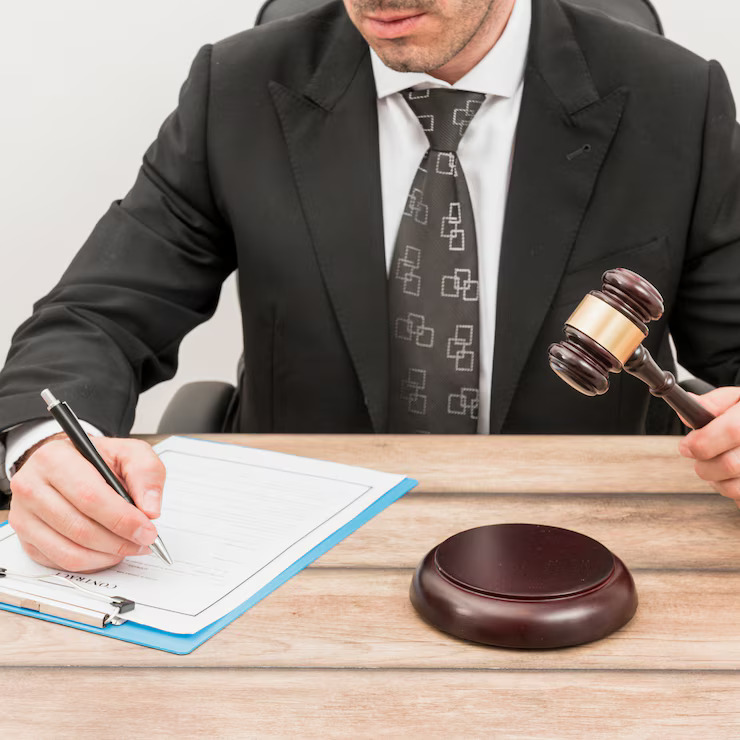Prosecutorial discretion and the extent of the attorney-general’s constitutional powers
15 January 2021
Peter Doraisamy LLC Recognised by Asialaw Profiles 2021
Introduction
Most would think that when a person commits a crime, it is the police that decides on which charge(s) an offender should be charged with in Court. However, in actual fact, it is not the police but the Attorney-General (“AG”) who decides as he retain full discretion over which charge should be preferred. This power to decide on which charge(s) to prefer, is known as ‘prosecutorial discretion’ and it is a power bestowed on the AG pursuant to Article 35 (8) of the Constitution of the Republic of Singapore.
In this article, we will discuss this concept of prosecutorial discretion and in doing so, we will discuss the scope of the AG’s discretion and recent case authorities which have clarified the extent of the AGs constitutional powers.
What is prosecutorial discretion?
Article 35(8) of the Constitution of the Republic of Singapore[1] states that:
The Attorney-General shall have power, exercisable at his discretion, to institute, conduct or discontinue any proceedings for any offence.
It is well established that the AG has the power to institute, conduct or discontinue criminal proceedings and that such power is exercisable at his sole discretion[2]. Further, the Court of Appeal held in Ramalingam Ravinthran v Attorney-General [2012] SGCA 2 (“Ramalingam”)[3] that the prosecution is generally not required to disclose how they have exercised prosecutorial discretion. On top of that, there is a presumption of constitutionality of prosecutorial discretion. This means that whenever the AG (or the Deputy Public Prosecutors who exercise the powers of the AG), exercises his discretion to prosecute (or not to prosecute), there is a presumption that the AG had properly exercised this discretion.
That being said, this does not necessarily mean that the Attorney-General’s powers are absolute or that they cannot be challenged. The presumption of constitutionality can be challenged if there is sufficient prima facie evidence (i.e some initial evidence showing that the AG has exercised his discretion improperly). Once such prima facie evidence is shown, the burden then shifts to the AG to justify his prosecutorial decision.
Guidelines to prosecutorial discretion
Although the AG is not required to disclose the reasons underpinning the exercise of his discretion, the Attorney-General’s Chambers have published guidelines on how they generally exercise their discretion. These guidelines feature in the prosecutorial discretion when deciding whether to charge a person. At least two prosecutors will make the decision, and there will be at least one separate higher level of review. Hence there are various layers of reviews, and in cases involving capital offences, the Attorney-General himself personally reviews prosecutorial decisions.[4]
Factors to take into account
Prosecutors will take into account a wide range of factors when deciding on a charge. Some of the factors are but not limited to: the strength of evidence, cooperation of the accused, public interest and mitigating circumstances such as physical or mental limitations[5]. Prosecutors also have an obligation to consider the offender’s moral blameworthiness and the gravity of the damage caused to the public by his actions, amongst other factors, according to the Court of Appeal in Ramalingam[6].
Internal guidelines
The Attorney-General Chambers (“AGC”) also has internal guidelines to follow in order to ensure consistency. These guidelines are not published so it is unclear as to what they precisely entail. The AGC has defended this non-publication, arguing that this allows prosecutors flexibility, allowing them to depart from the guidelines where necessary[7]. Another reason is that intelligence and other confidential sources of information may be compromised if the guidelines and reasons for prosecutorial decisions are published. Also, offenders may find ways to work around these guidelines.
According to a former Attorney-General, prosecutors in 2008-2009 were guided by a four-stage thought process[8]: “Firstly, the prosecutor must be convinced beyond reasonable doubt that the accused is guilty of the crime alleged against him … an evaluation of the available information is made. The quality of the oral and documentary evidence is assessed. The prosecutor may [also] be provided with … the results of polygraph tests, information received from intelligence sources, statements made by persons who are unwilling to testify in court … . [T]he next stage of the decision process is an evaluation of the admissible evidence. Not every piece of information available to the prosecutor can be presented to the court … . [O]ne proceeds to the third stage, viz, to decide whether it is in the public interest to bring the accused to court at all … ”. Lastly, the prosecutor will decide whether a conviction is necessary for the purposes of retribution, denunciation, general deterrence, specific deterrence or protection of the public.
Limits to the unfettered discretion of the AG
Recently, the High Court in PP v Soh Chee Wen & Quah Su Ling [2020] SGHC 186 (“Soh Chee Wen”) revisited the issue on the ambit of Article 35(8) of the Constitution. The High Court in Soh Chee Wen drew a distinction between the powers to conduct proceedings and the powers to maintain criminal proceedings. While the AG has unfettered discretion as to instituting, conducting and discontinuing proceedings (save for exceptional situations such as unconstitutionality), the AG does not have the power to maintain proceedings under Article 35(8) of the Constitution. The High Court held that it is not the AG but the Court that retains control over the criminal proceedings once the accused is brought before the Court. The High Court held that such a finding is consistent with the decision in Law Society of Singapore v Tan Guat Neo Phyllis [2007] SGHC 207 (“Phyllis Tan”)[9]. The High Court in Phyllis Tan held that it is an established principle that when an accused is charged in court, the proceedings thereafter are subject to the control of the Court. The Court may then proceed with the case as it thinks fit, within the limits of its judicial and statutory powers.
Accordingly, once proceedings are brought before the Court, only the Court has the discretion to decide on matters relating but not limited to the hearing dates of the proceedings, adjournment requests, and control over the pace of proceedings. Quite importantly, the Court also has the discretion to decide whether a matter may be stayed, and whether charges may be stood down. Extrapolating the High Court’s decision in Soh Chee Wen, this may also mean that a statutory moratorium granted to a company under the now repealed Section 211B of the Companies Act or its replacement Section 64 of the IRDA would be a matter relating to the Court’s powers to maintain proceedings. Therefore, a statutory moratorium may also operate as a stay on criminal proceedings that have been initiated by the prosecution.
Conclusion
The AG is empowered by Article 35(8) of the Constitution. While the AG has unfettered discretion as to when and how he exercises the powers pursuant to Article 35(8) of the Constitution, this unfettered discretion does not apply to anything that falls outside the ambit of Article 35(8). The Courts have drawn a distinct line, as seen in Soh Chee Wen, between the AG’s powers to institute, conduct and discontinue proceedings, and the power to maintain such proceedings, which the falls within the Court’s purview.
[1] Constitution of the Republic of Singapore [1965], Art 35(8)
[2] Law Society of Singapore v Tan Guat Neo Phyllis [2008] 2 SLR(R) 239; Ramalingam Ravinthran v Attorney-General [2011] SGHC 140;
[3] Ramalingam Ravinthran v Attorney-General [2011] SGHC 140
[4] Parliament of Singapore, “Parliamentary report Committee of Supply – Head R (Ministry of Law)” (2012, March 6), K Shanmugam, online <https://sprs.parl.gov.sg/search/topic?reportid=006_20120306_S0004_T0004>
[5] Straits Times, (2012, January 21) AGC: Robust reviews before discretion is exercised
[6] Supra note 3
[7] Supra note 4
[8] International Review of Law, “The Limits on Prosecutorial Discretion in Singapore: Past, Present, and Future”, (2013) Chen Siyuan, online <https://ink.library.smu.edu.sg/sol_research/1982/>
[9] Supra note 3
Contributed by:
Chambers & Partners – Asia Pacific 2023
PDLegal LLC is pleased to announce that Managing Partner, Peter Doraisamy, has been recognised and ranked by Chambers & Partners (Asia Pacific 2023 for Shipping: Domestic: Litigation). The following quotes appear with Peter’s ranking: –
“Peter Doraisamy of PDLegal in Singapore is a noted shipping lawyer in the market. He handles a wide range of disputes, including ship grounding, cargo and fraud-related cases” – Chambers & Partners – Asia Pacific 2023
“He is excellent in litigation. He has very good control of the case, collecting the right evidence and putting this into a very successful trial.” – Shipping Litigation Client
Chambers and Partners is the leading independent professional legal research company operating across 200 jurisdictions. Chambers and Partners delivers detailed rankings and insights into the world’s leading lawyers and law firms.
This ranking is a testimony to the expertise and experience of the Firm’s shipping practice and would not be possible without the support of our clients and friends.
View All Awards

We’re here to help you.
Whether you're seeking advice, representation, or have general inquiries, we're here to help. if you would like to speak to us for more information, please contact our client services team who will be happy to assist.
Let's Get In Touch
Our Office
- A:
PDLegal LLC Advocates & Solicitors 1 Coleman Street #08-02 The Adelphi Singapore 179803
- E:
- T:
- F:
(65) 6220 0392
- H:
Mon - Fri : 9:00 am - 5:00 pm Sat : 8:30 am - 12:00 pm









